I'm trying to write a program that concurrently add and removes items from a "storehouse". I have a "Monitor" class that handles the "storehouse" operations:
class Monitor
{
private:
mutex m;
condition_variable cv;
vector<Storage> S;
int counter = 0;
bool busy = false;;
public:
void add(Computer c, int index) {
unique_lock <mutex> lock(m);
if (busy)
cout << "Thread " << index << ": waiting for !busy " << endl;
cv.wait(lock, [&] { return !busy; });
busy = true;
cout << "Thread " << index << ": Request: add " << c.CPUFrequency << endl;
for (int i = 0; i < counter; i++) {
if (S[i].f == c.CPUFrequency) {
S[i].n++;
busy = false; cv.notify_one();
return;
}
}
Storage s;
s.f = c.CPUFrequency;
s.n = 1;
// put the new item in a sorted position
S.push_back(s);
counter++;
busy = false; cv.notify_one();
}
}
The threads are created like this:
void doThreadStuff(vector<Computer> P, vector <Storage> R, Monitor &S)
{
int Pcount = P.size();
vector<thread> myThreads;
myThreads.reserve(Pcount);
for (atomic<size_t> i = 0; i < Pcount; i++)
{
int index = i;
Computer c = P[index];
myThreads.emplace_back([&] { S.add(c, index); });
}
for (size_t i = 0; i < Pcount; i++)
{
myThreads[i].join();
}
// printing results
}
Running the program produced the following results:
I'm familiar with race conditions, but this doesn't look like one to me. My bet would be on something reference related, because in the results we can see that for every "missing thread" (threads 1, 3, 10, 25) I get "duplicate threads" (threads 2, 9, 24, 28).
I have tried to create local variables in functions and loops but it changed nothing.
I have heard about threads sharing memory regions, but my previous work should have produced similar results, so I don't think that's the case here, but feel free to prove me wrong.
I'm using Visual Studio 2017
